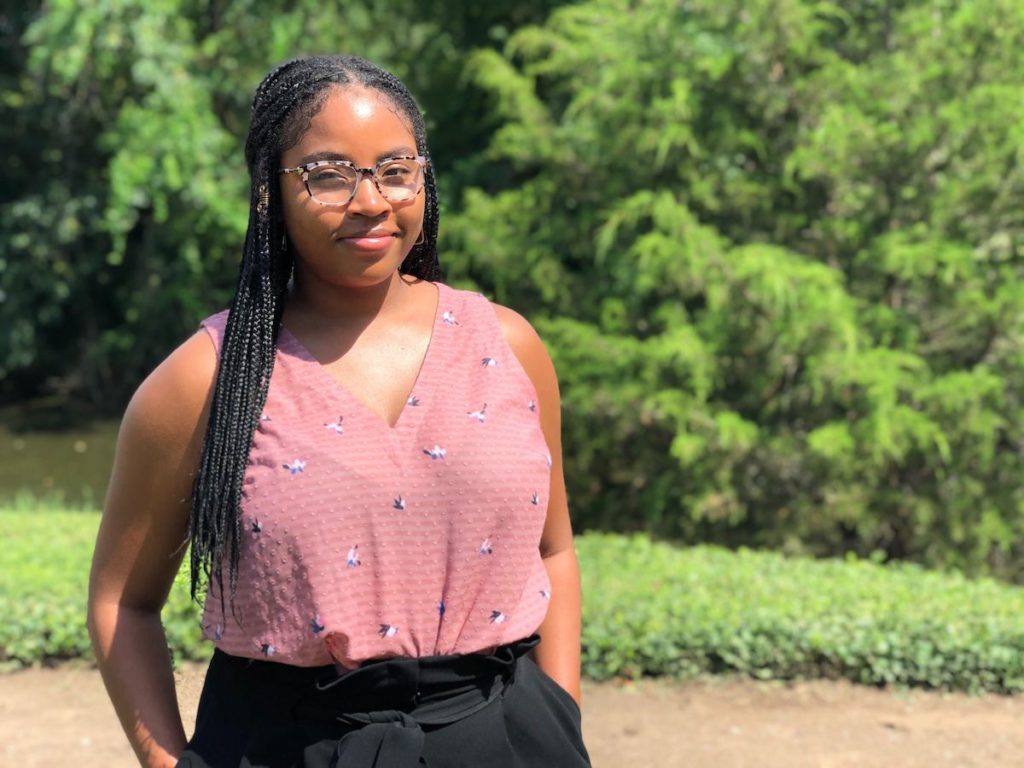
Some people have just started having conversations about how racism and white supremacy shape our daily lives. But for many Black Nashvillians, that breaking point came long ago.
So WPLN’s Ambriehl Crutchfield decided to ask people about the moments that caused them to think differently about race and whiteness — and what their visions are for the future — in our new series Breaking Points. She shared her reflections on producing the series with WPLN’s Jason Moon Wilkins. Listen to their interview above, or read the interview transcript below.
Interview Highlights
Jason Moon Wilkins: So you started as a reporter at WPLN News in early June, just after the first weekend of nationwide protests against police brutality and systemic racism, and you pitched this idea on your very first day. What motivated you to do this series?
Ambriehl Crutchfield: During that time, I was really struggling myself with processing emotions of the current movement, and also past racism I had experienced was coming back up. And when I went to go talk to my family, they also were having very strong emotions. So, it just made me curious: How are other Black people processing this movement? What were they doing and how are they dealing with that anger? And I talked to Asha Evans, who had a really good point about the way that the cycle of racism continues:
Asha Evans: I feel like Black people are in a constant state of having to take little microaggressions and within that, they become a big macro aggression that we have to deal with constantly for our entire lives. It’s rough. Like I could go outside and get killed any day.
AC: That was such a powerful statement to me. And I knew it was important to let Black people tell their stories for themselves because they don’t always get a chance to do that.
More: Breaking Points: Racism In The Workplace Is ‘Not An Isolated Situation’
JW: As you point out, it’s not like these ideas and these issues are new. Did you get the sense … that white people in particular are listening more intently and maybe even differently in this moment?
AC: A lot of the people I spoke to in the series or just in general were ready to see white people take action. You’re saying “Black lives matter” or posting a blackout picture, but what are you going to do, action-wise? And they also were kind of contemplating, where do they see themselves trying to push for change? And I think Howard Gentry answered that so beautifully: Think of it more as building on what our ancestors have already done.
Howard Gentry: When (Black people) saw the civil rights movement and saw the power of that moment they knew. They knew that this is the time. Time’s gonna change. That’s what I’m feeling right now about the movement that’s taking place right now. They felt it. They believed it. And they started preparing us. Because all of them would not be able to take advantage of the new day.
AC: When I was listening and speaking to Howard Gentry, I really was trying to figure out, how are Black people continuing to go forward when it feels like you keep getting knocked back? And one thing that he really stressed to me that I thought was important is that we’re not starting from scratch. This is a part of a longer movement that we’ve always been doing since we’ve been in America.
More: Breaking Points: ‘This Is The Time’ To Turn Anger About Oppression Into A New Future
JMW: Ambriehl, you have faced racism, both personal and structural in your life. What did you take away from doing this series?
AC: You know, it was nice to just hear all these people talk about — yes, we faced disparities, but they had so many ideas of how we move forward and what barriers need to be removed in order for them to achieve what they want. So I’m really imagining for myself where we as Black people and as a united nation would be if those barriers weren’t there.

